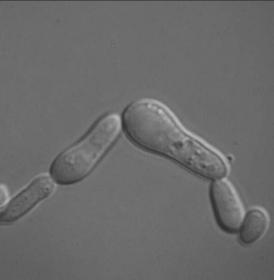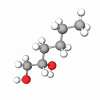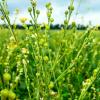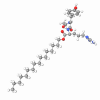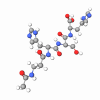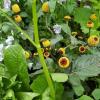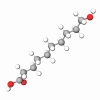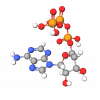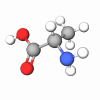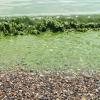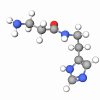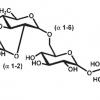Saccharomyces Lysate Extract is produced by exposing cells of Saccharomyces cerevisiae to hydrogen peroxide. It has been well established that introducing stress in the form of heat or UV radiation to yeast cell cultures will promote the formation of tissue respiratory factors (TRF).
TRF has been shown to increase cell respiration in both fibroblasts and leukocytes. The exact mechanism of how TRF works is still under investigation, however, it has been shown that TRF activity can be inhibited by the addition of KCN (Potassium cyanide). KCN is also a known inhibitor of cytochrome oxidase, an enzyme responsible for cell respiration. From this, it has been inferred that TRF stimulates cytochrome oxidase activity.
Because of the oxidative stress used to stimulate the yeast in the production of Saccharomyces Lysate Extract, we can see the development of a new spectrum of activity. Saccharomyces Lysate Extract not only increases cell respiration but also enhances protection from oxidative stress and UV radiation.
Due to the cell stimulatory properties, Saccharomyces Lysate Extract can significantly enhance the benefits of typical cosmetic preparations. By increasing cell respiration, Saccharomyces Lysate Extract heightens the efficiency with which cells utilize oxygen, potentiating the efficacy of other actives. An increase in cell respiration can also promote an increase in collagen and elastin synthesis.Baker's yeast has been used for thousands of years for making foods and beverages. Like most other eukaryotic cells, it is known to exhibit resistance to stresses that threaten its survival. When exposed to non-lethal amounts of physical or chemical trauma, yeast responds by producing beneficial metabolites.
Early research done by George Sperti and his team substantiated this claim. Upon exposure to non-lethal stresses [for example, ethanol], Sperti found that live cells produce growth-promoting substances which he referred to as ‘biodynes’. Biodynes® appear to have the ability to increase oxygen uptake in a variety of living cells, including other types of yeast, bacteria, and human skin cells, such as fibroblasts and keratinocytes. Increasing oxygen uptake helps to increase cellular respiration and promote wound healing.
Cell cultures of Saccharomyces cerevisiae (Baker’s Yeast) are brought to viability in an appropriate nutritional media under controlled temperature and pH for several hours. The living yeast cells are then subjected to irradiation with ultraviolet light, heat, or strong oxidizers. The cells respond to this non-lethal injury by producing a variety of protective substances. Absorption is measured at 256 – 258 nm, which indicates changes in the nucleotide composition within the cells. The injury or stressing process is continued until the complex biochemical protective mechanisms are complete. The nutrient media is then removed, and the yeast cell walls are broken down through the use of a proteolytic enzyme. The cell wall material is centrifuged out, leaving the cellular protoplasm behind. The result is the water-soluble yeast extract, Saccharomyces Lysate Extract.
Stressed yeast cell derivatives have been widely explored for wound healing applications, with several references suggesting that biodynes stimulate epithelisation and collagen synthesis. They have been used in combination with other actives to achieve enhanced benefits in various medical treatments, due to the ability of LYCD to potentiate other actives.Saccharomyces Lysate Extract has the ability to increase cellular activity which enhances the overall product benefits as it works synergistically with other actives in formulations. In vitro studies on human dermal fibroblasts confirm that Saccharomyces Lysate Extract promotes both procollagen and hyaluronic acid synthesis. Separate in vivo panel studies support the subjective claims of skin smoothing, calming, and reduction of sunburn pain.
From decorative cosmetic products to sun care formulations, anti–aging products to skin cleansing and conditioning, the benefits of Saccharomyces Lysate Extract are evident.
What are the benefits of Saccharomyces Lysate Extract?
- Anti-inflammatory
- Soothing
- Anti-irritant
- Cell renewing
- Cell respiration
- Line minimizing
- Smoothing
- Moisturizing
